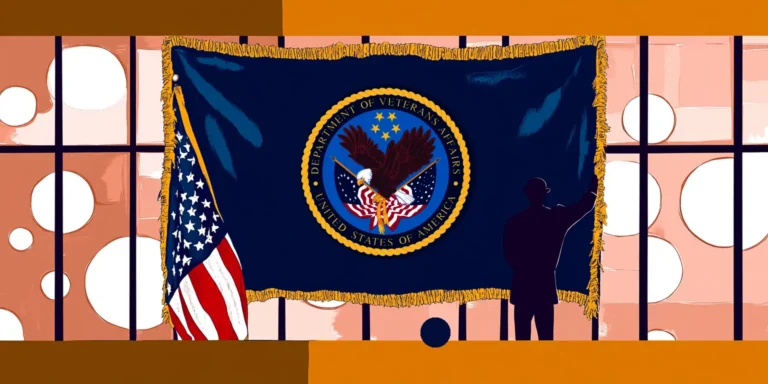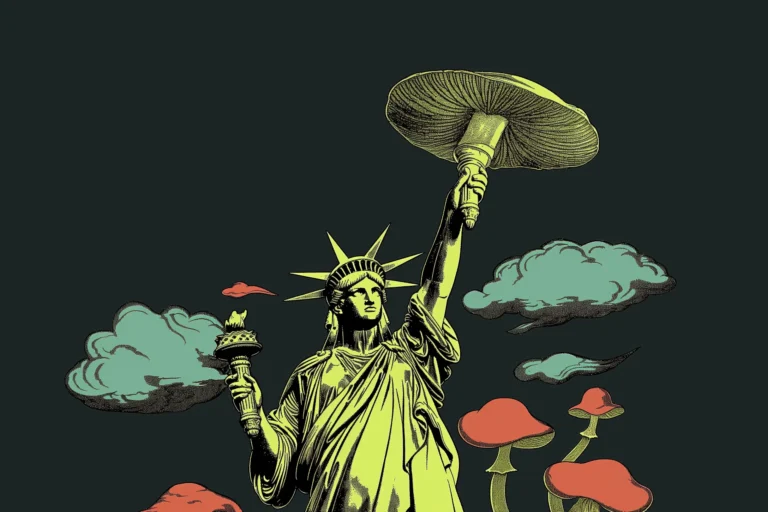In this week’s psychedelic news roundup former NHL player Kyle Quincey unveils his dream of a psychedelic retreat in Colorado, aiming to offer solace to veterans, athletes, and first responders. Meanwhile, in Oregon, James Carroccio finds healing from past traumas through psilocybin therapy. As we explore the potential of psychedelics in athlete mental health, David Lawrence from the University of Toronto sheds light on the unique challenges athletes face and how these substances might offer relief. On a lighter note, magic mushrooms are making their way into our kitchens, becoming an alternative to alcohol, and offering a deeper, introspective experience. Lastly, a recent study delves into the co-use of MDMA with psilocybin or LSD, aiming to understand the potential benefits and implications of this combination. Join us as we navigate these intriguing narratives, uncovering the evolving landscape of psychedelics.
NHL Star Kyle Quincey’s Vision for a Psychedelic Retreat in Colorado
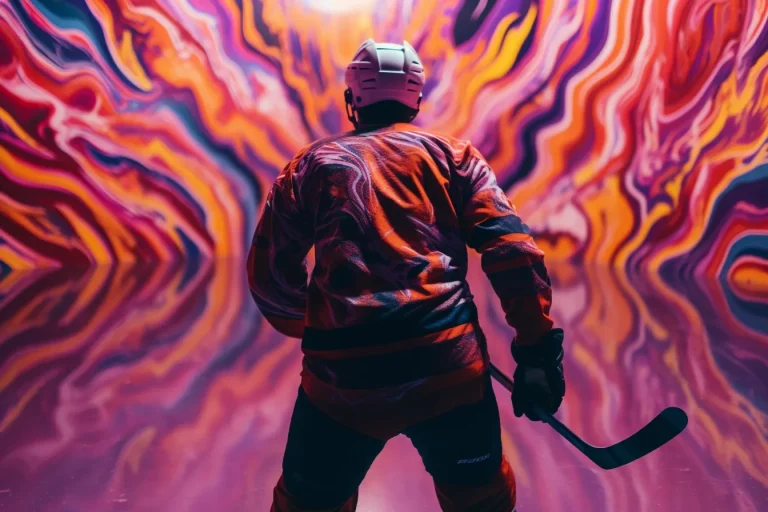
In an article by The Denver Post, former NHL player Kyle Quincey is venturing into the world of psychedelic therapy by establishing a retreat center in Colorado named Do Good Ranch. After retiring from hockey in 2019, Quincey faced significant emotional challenges, exacerbated by his son’s brain cancer diagnosis and the onset of the COVID-19 pandemic. An introduction to psilocybin, commonly known as “magic mushrooms,” by ex-Chicago Blackhawks player Daniel Carcillo, led Quincey to experience a profound personal transformation. This experience inspired him to create a sanctuary where individuals, especially veterans, athletes, and first responders, can seek healing through psilocybin therapy for issues like traumatic brain injury, addiction, and depression.
Research on psilocybin suggests it has potential in treating treatment-resistant depression, end-of-life anxiety, and addiction. Dr. Albert Garcia-Romeu from Johns Hopkins University School of Medicine mentioned ongoing research into psilocybin’s impact on neurodegenerative disorders and its ability to promote neuroplasticity in animals. While the substance’s effect on traumatic brain injury hasn’t been systematically studied, anecdotal evidence suggests potential benefits. The growing interest in psilocybin’s therapeutic potential led Colorado voters to legalize psilocybin-assisted therapy recently.
Quincey’s vision for Do Good Ranch is clear: to create a hub for “healing, education, and community.” Located in Paonia, the retreat center’s construction is underway, with plans to open in line with Colorado’s legal industry in 2025. Quincey also has ambitions to expand this model to other states as they legalize psychedelic-assisted therapy. He emphasized the similarities between the challenges faced by ex-athletes and ex-military personnel, stating, “All of us in these industries, it’s very high stress. We trained our bodies, we never trained our minds.” Through his initiative, Quincey hopes to offer a domestic solution for those seeking healing, rather than them having to travel abroad.(1)
Keep Up with Psychedelic Trends
Don’t miss the latest psychedelic news, events, companies, and more.
We respect and protect your privacy. By subscribing your info will be subject to our privacy policy. Unsubscribe easily at any time
James Carroccio’s Healing Journey with Psilocybin Therapy in Oregon
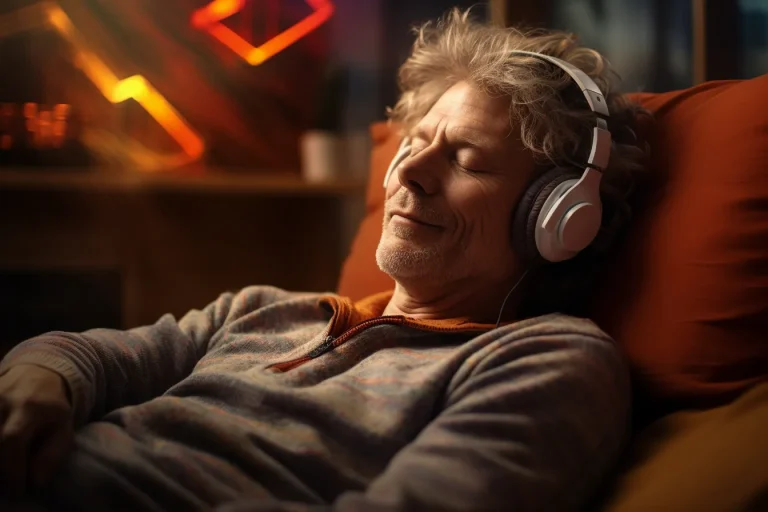
In an interview published by OPB News, Oregon’s recently launched psilocybin therapy program is offering a new avenue for healing. One of its early participants, James Carroccio, a retired business owner from Arizona, sought the therapy to address the trauma of losing his father at 14, which he believes led to his obsessive-compulsive disorder and post-traumatic stress disorder. Over the years, Carroccio’s compulsive behaviors, such as obsessively cleaning his home, impacted various facets of his life. Traditional therapy provided temporary relief but didn’t change his behavioral patterns. Hoping for a transformative experience, Carroccio turned to Bendable Therapy in Bend, Oregon, a non-profit psilocybin service center.
During his session at Bendable Therapy, Carroccio was guided by facilitator Josh Goldstein. Before taking the psilocybin, they discussed Carroccio’s compulsive behavior and its origins. This conversation led Carroccio to the realization that his behaviors might have been a response to the chaos and loss he felt after his father’s death. Under Oregon’s regulations, Carroccio consumed 50 milligrams of dried mushrooms. As the effects set in, he felt a sense of weightlessness and peace. Reflecting on his mental health and his father, Carroccio confronted his deep-seated grief, which was followed by an overwhelming feeling of love.
Post-session, Carroccio met with Goldstein to integrate his newfound insights. While the state’s psilocybin program is not deemed medical and facilitators cannot diagnose or treat health conditions, the focus is on ensuring participants’ safety. Carroccio’s experience was profoundly positive. He now exhibits more controlled and mindful reactions, as observed by his wife, Tanya Smith-Carroccio. He believes in the potential of psilocybin therapy for personal growth and wishes he had access to it earlier in his life. These individual stories begin to paint a portrait of the potential of these healing medicines.(2)
Exploring the Potential of Psychedelics in Athlete Mental Health
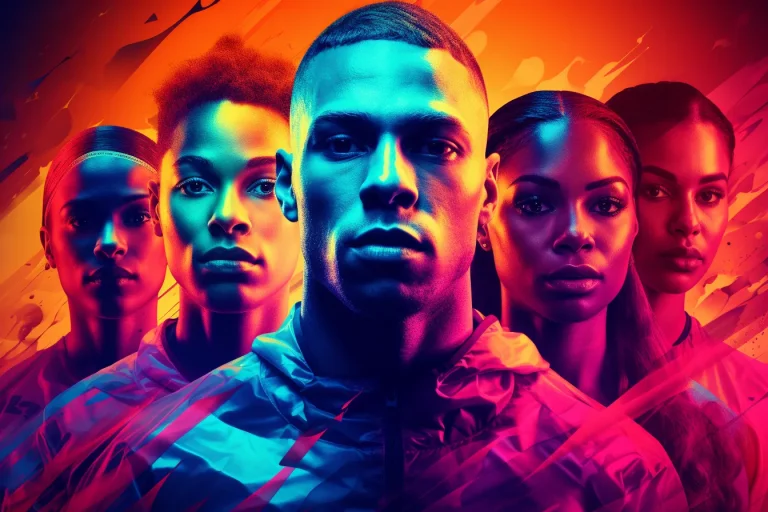
Coming to us from the University of Toronto News, David Lawrence, a medical director at the University of Toronto’s Faculty of Kinesiology & Physical Education, is delving into the potential of psychedelics to address mental health issues in athletes. His recent study, published in the Journal of Psychoactive Drugs, explored the sense of familiarity experienced by DMT users, a powerful psychedelic. The study found that this sense wasn’t linked to prior psychedelic use.
Lawrence’s broader research interest lies in the application of psychedelics to treat mental health conditions prevalent among athletes. He believes that psychedelics, particularly when combined with psychotherapy, could offer therapeutic benefits for disorders like depression, PTSD, and anxiety. Given the unique mental strains athletes face, Lawrence is curious about how psychedelics could be integrated into a comprehensive mental health strategy for them.
Athletes often face a myriad of stressors, from performance pressures to personal issues like injuries and career transitions. A recent meta-analysis suggests that 20 to 35% of elite athletes experience mental health symptoms or conditions. Some athletes also struggle with disordered eating patterns, and preliminary reports hint at the potential of psilocybin in treating conditions like anorexia. Additionally, the use of psychedelics like DMT is being explored for treating acquired brain injuries, which could be relevant for sports medicine, especially in the context of concussions.
Keep Up with Psychedelic Trends
Don’t miss the latest psychedelic news, events, companies, and more.
We respect and protect your privacy. By subscribing your info will be subject to our privacy policy. Unsubscribe easily at any time
Lawrence is particularly intrigued by the potential of psychedelics to promote introspection, cognitive flexibility, and lasting shifts in perception – qualities that could be invaluable for athletes grappling with the immense pressures of their profession.(3)
The Rise of Magic Mushrooms as an Alternative to Alcohol
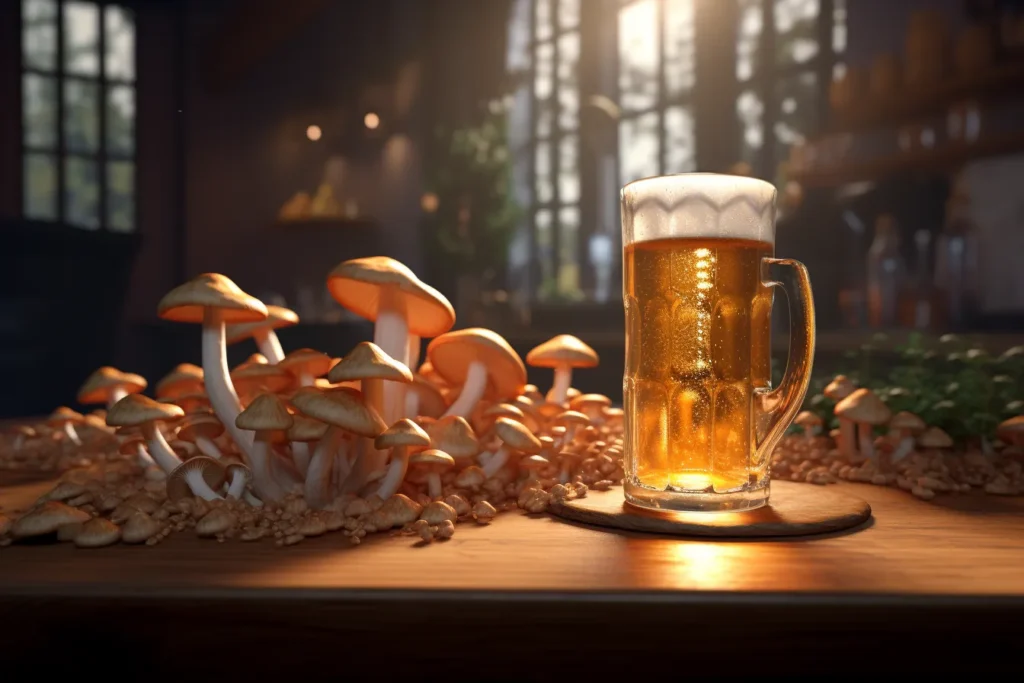
The Evening Standard details how magic mushrooms, once known for their psychedelic trips, are now being creatively infused into everyday foods like chocolates, lasagnas, and even in pill form. Abigail Moss highlights this evolving trend, suggesting that mushrooms are becoming the sophisticated choice for those seeking a way to relax that is more fruitful. Loumir, a London-based graphic designer, described her unique experience of consuming a chocolate bar laced with psilocybin, which closely resembled a popular candy bar. While some are brewing teas or creating dishes with dried mushrooms, others are exploring the culinary potential of truffles.
Luke, a screenwriter, shared that mushrooms offer stress release without the subsequent hangover that alcohol or other drugs induce. He’s even started hosting dinner parties featuring mushroom-infused dishes. For many, the allure of magic mushrooms lies in their ability to offer a deeper, more introspective experience, making them a popular choice for social gatherings.
In Shoreditch, a group of self-proclaimed psychonauts gathers regularly to exchange stories of their adventures with psychedelics. This group, predominantly young professionals, believes that their experiences with these substances have enriched their lives. June, an educator, contrasts the mindful experience of consuming mushrooms with the often mindless act of binge drinking.
Jules Evans, who spearheads a project on challenging psychedelic experiences, warns that while these substances might be gaining in popularity, they are not without potential risks. Evans stresses the importance of recognizing that all substances, including psychedelics, come with inherent risks.
The narrative around magic mushrooms is changing, with many users describing profound, life-altering experiences. Some even credit these mushrooms with helping them reduce or quit alcohol. However, the effects can vary widely, emphasizing the need for a cautious and well-informed approach to their use.(4)
Co-use of MDMA with Psilocybin/LSD: Potential Benefits and Implications
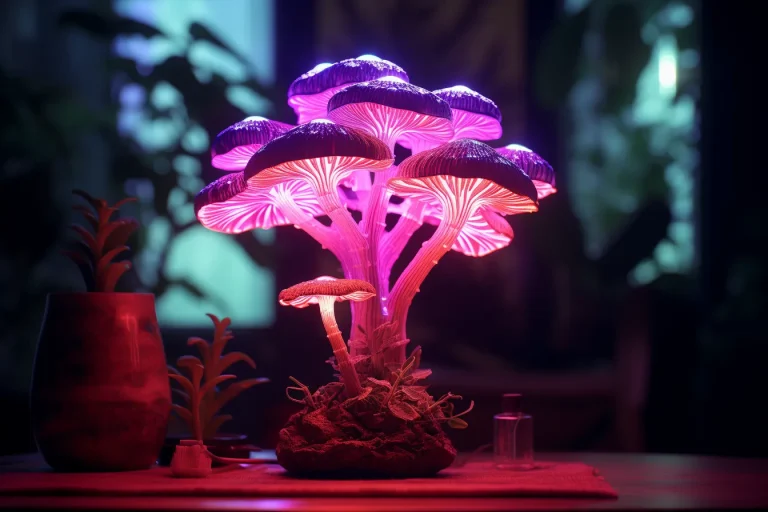
A new study published in Nature, details how researchers are examining the potential of co-using MDMA with psychedelic medicine to reduce the risk of negative psychedelic events (aka a bad trip). The experiences induced by psilocybin and LSD can vary widely, from profoundly positive to deeply challenging (such as feelings of fear, grief, and paranoia). These challenging experiences have been a significant concern for both health care providers and patients considering psychedelic-assisted psychotherapy.
Anecdotal evidence suggests that co-using MDMA with psilocybin or LSD might reduce these challenging experiences and amplify the positive ones. This study aimed to investigate these claims.
A sample of 698 individuals planning to use psilocybin or LSD was studied. Among them, 27 reported co-using MDMA with either psilocybin or LSD. The study assessed challenging experiences using the Challenging Experiences Questionnaire and positive experiences using the Mystical Experience Questionnaire and other measures.
Key Findings:
- Challenging Experiences: Co-use of a low dose of MDMA with psilocybin/LSD was associated with significantly reduced challenging experiences, particularly feelings of grief and fear. However, this reduction was not observed with a medium-high dose of MDMA.
- Positive Experiences: Co-use of a low dose of MDMA with psilocybin/LSD was linked to increased feelings of self-compassion, love, and gratitude. However, there was no significant difference in mystical-type experiences or compassion.
The results suggest that co-using a low dose of MDMA with psilocybin or LSD might reduce challenging experiences and enhance certain positive ones. This could be particularly beneficial in therapeutic contexts, potentially reducing anxiety and increasing openness to psychedelic-assisted psychotherapy. However, it’s essential to consider whether challenging experiences play a crucial role in the therapeutic process. If they do, co-administration of MDMA might interfere with the therapeutic benefits of psilocybin or LSD.
While the co-use of MDMA with psilocybin or LSD shows promise in reducing challenging experiences and enhancing positive ones, more extensive research is needed. Future studies should focus on controlled dose-response studies to understand the effects and safety of co-administering MDMA with psilocybin or LSD.(5)
From personal healing journeys to scientific inquiries, the stories shared highlight the transformative power of these substances. However, as with any frontier, it’s essential to tread with caution, understanding, and respect for the profound experiences they can induce. As research continues and personal narratives unfold, we remain committed to bringing you the most insightful and balanced perspectives on this ever-evolving topic. Until next week, stay curious and informed.
Sources

1. Ricciardi. T., Ex-NHL player Kyle Quincey is building a psychedelic retreat center in Colorado for athletes, military. (2023, August 24). The Denver Post. https://www.denverpost.com/2023/08/24/kyle-quincey-colorado-avalanche-psychedelic-retreat-center-do-good-ranch/
2. Fonden-Vincil. K., Oregon now offers psilocybin therapy. Here’s what one of the first patients experienced. (n.d.). Opb. Retrieved August 24, 2023, from https://www.opb.org/article/2023/08/23/psilocybin-mushroom-therapy-oregon-psychedelic-bendable-bend-ptsd-ocd-mental-health/
3. Damjanovic. J., Could psychedelics be used to help manage athletes’ mental health? (n.d.). University of Toronto. Retrieved August 24, 2023, from https://www.utoronto.ca/news/could-psychedelics-be-used-help-manage-athletes-mental-health
4. Moss, A. (2023, August 23). Have magic mushrooms become the new drinking? Evening Standard. https://www.standard.co.uk/insider/magic-mushrooms-psilocybin-new-drinking-b1102414.html
5. Zeifman, R. J., Kettner, H., Pagni, B. A., Mallard, A., Roberts, D. E., Erritzoe, D., Ross, S., & Carhart-Harris, R. L. (2023). Co-use of MDMA with psilocybin/LSD may buffer against challenging experiences and enhance positive experiences. Scientific Reports, 13(1), 13645. https://doi.org/10.1038/s41598-023-40856-5
This material is not intended as a replacement or substitute for any legal or medical advice. Always consult a medical professional about your health needs. Psychedelics are widely illegal in the United States, and readers should always be informed about local, state, and federal regulations regarding psychedelics or other drugs.
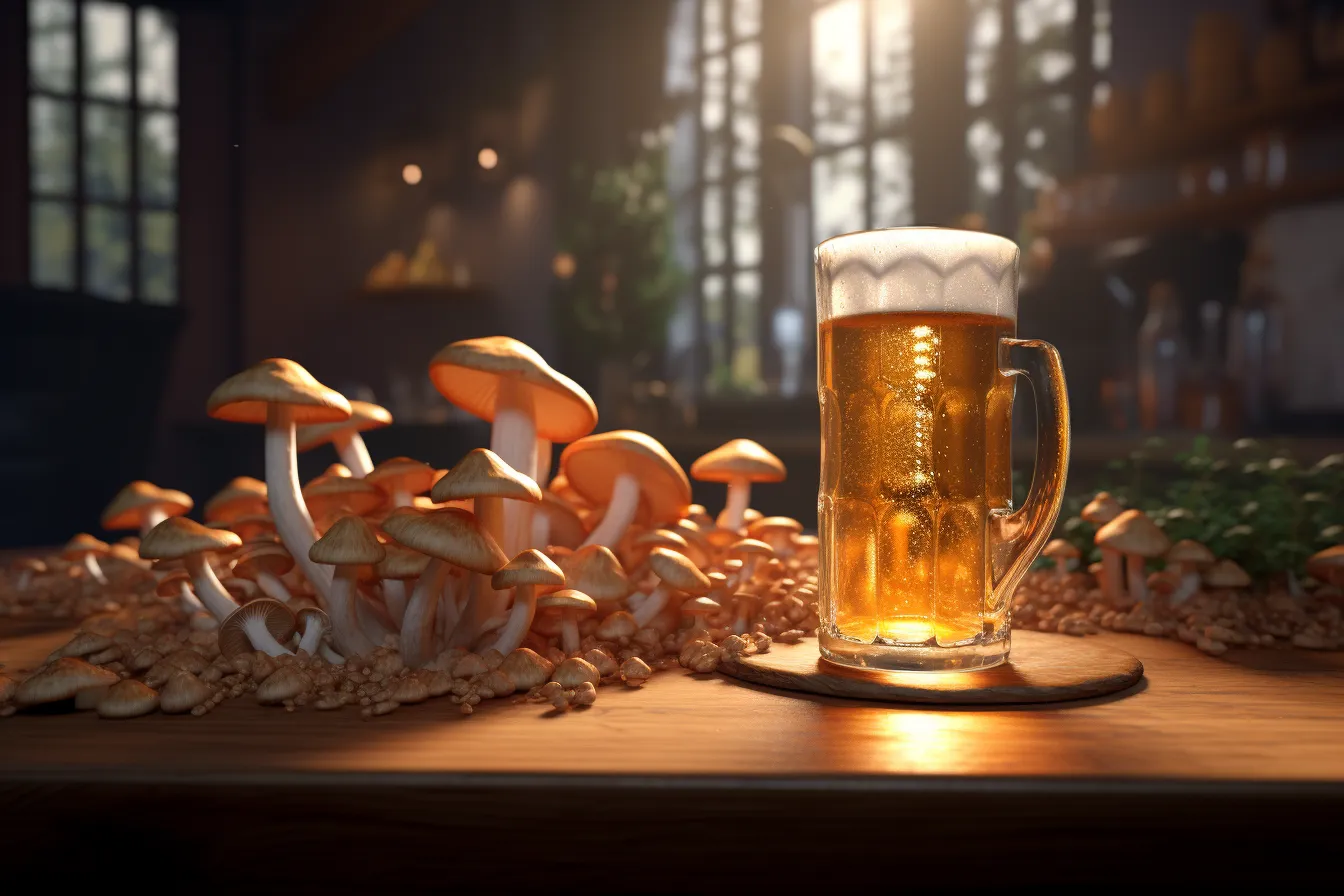
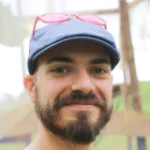 David Connell
David Connell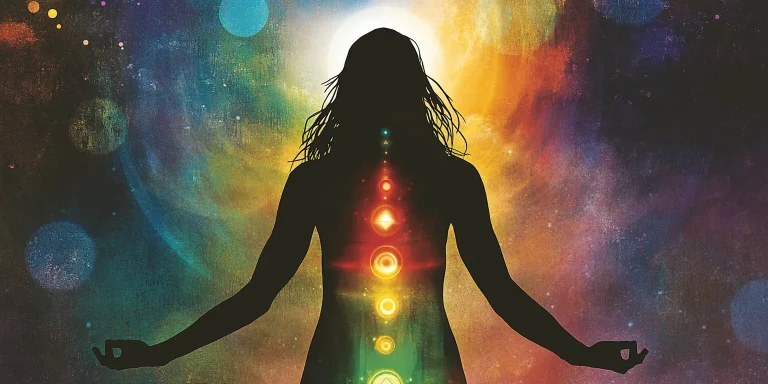
 Ross Dillon
Ross Dillon 